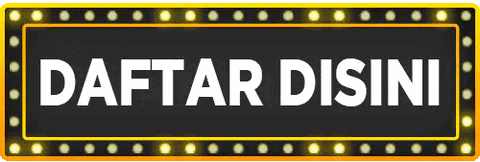Slot Gacor
GRAND88 » Situs Judi Slot Online Resmi Luar Negeri Terpercaya Gampang Menang
GRAND88 » Situs Judi Slot Online Resmi Luar Negeri Terpercaya Gampang Menang
Couldn't load pickup availability

Masih mencari situs judi slot online resmi luar negeri terpercaya? Kami GRAND88 memiliki 10.300+ demo slot gacor terbaru server luar negeri yang siap dimainkan dengan sensasi maxwin jackpot terbesar. Kapan lagi bisa bermain slot online luar negeri dengan uang asli rupiah bergabung dengan situs GRAND88 semua kebutuhan permainan slot gacor RTP tinggi bisa kamu dapatkan disini.
Nikmati sensasi Jackpot progresif permainan judi slot online resmi terpercaya di situs GRAND88 dari berbagai server luar negeri dengan ratusan jenis game slot gacor dari server Pragmatic Play, PG Soft, No Limit City, Microgaming, Habanero dan banyak lagi lainnya.
Salah satu keunggulan slot online resmi luar negeri yaitu setiap jenis permainan slot nya telah dinilai dan di seleksi secara resmi dengan proses yang ketat, mencakup keamanan, variasi permainan, bonus permainan, kualitas slot, nilai RTP, dan Jackpot progresif. Semua ini harus memenuhi kriteria dan lulus untuk dapat kami berikan kepada pemain.
Daftar Situs Judi Slot Gacor Luar Negeri Terpercaya 2024
Menemukan permainan judi slot online terbaik dan terpercaya gampang menang maxwin bukanlah hal sulit. Dibawah ini kami selaku situs judi slot online resmi akan mencantumkan situs slot server luar negeri paling atas di tahun 2024 berdasarkan berbagai provider yang layak kamu coba mainkan dan kamu menangkan.
No Limit City
Situs No Limit City merupakan provider situs slot luar negeri dan salah satu pendatang baru yang baru saja di terbitkan oleh Nexus meskipun masih baru situs slot ini tidak bisa di pandang sepele, mereka berani menghadirkan jenis - jenis game slot yang sangat mudah di menangkan ini terbukti bahwa saat ini pemain sedang ramain memperbincangkan keberadaan slot No Limit City ini. Akan tetapi saat ini slot No Limit City hanya menghadirkan game terbatas hanya 20 jenis permainan.
Microgaming
Microgaming menjadi pilihan tertua sebagai vendor penyedia permainan taruhan kasino dan slot online luar negeri. Pasalnya, penyedia ini sudah berdiri sejak tahun 1994 dan masih tetap sama hingga saat ini. Berbagai jenis pilihan permainan dengan tingkat kemenangan tinggi dan jackpot besar pasti bisa anda nikmati di sini.
Pragmatic Play
Situs Pragmatic Play merupakan pilihan terbaik dan terpopuler di kawasan Asia, termasuk Indonesia. Banyak alasan mengapa banyak orang merekomendasikan slot luar negeri ini, salah satunya karena koleksi gamenya yang super lengkap. Anda dan pemain lainnya dapat menikmati berbagai pilihan permainan di sini, termasuk game taruhan slot gacor dengan nilai RTP tinggi.
PG Soft
Situs PG Soft disebut sebagai provider slot luar negeri yang sukses dengan teknologi paling cangggih menghadirkan beragam jenis slot gacor dengan akses yang ringan dan grafik profesional, salah satu jenis slot yang terkenal yaitu Mahjong Ways. Slot gacor PG soft ini mendapatkan antusias yang cukup banyak di Indonesia. Dan satu ;agi reputasi slot PG Soft ini sudah tidak diragukan lagi akan lisensi resmi dan produk game slot yang terkenal gacor.
Slot88
Slot88 juga menyediakan berbagai pilihan game taruhan slot gacor yang mudah dimenangkan. Para pemain yang sudah mencoba bermain disini pasti tahu bahwa ada banyak pilihan permainan slot yang seru dan mudah dimenangkan dengan nilai RTP kemenangan yang tinggi. Hal ini berdasarkan beberapa indikator yang dapat dilihat.
Habanero
Slot Habanero juga bisa diandalkan sebagai alternatif pilihan tempat bermain taruhan judi slot luar negeri yang menguntungkan. Berbagai pilihan keuntungan dan hadiah besar bisa anda dapatkan di sini. Setiap pemain pasti berharap untuk menang dan permainan taruhan slot yang mudah dimenangkan dapat ditemukan di procoder Habanero ini.
Mengapa Bermain Game Slot Online Luar Negeri di GRAND88?
Banyak pilihan game slot gacor luar negeri dengan persentase RTP tinggi dan kami menawarkan setiap game slot yang kami tawarkan dibuat dengan grafik, animasi, fitur bonus free spin terbaik yang dapat Anda temukan di GRAND88.
Situs GRAND88 sudah berpengalaman lebih dari 1 dekade di dunia judi slot online dan berbekal lisensi resmi luar negeri, memberikan garansi kemenangan kepada pemain GRAND88 juga menyajikan bonus setiap minggunya kepada pemain sebagai apresiasi menjadi member.
Didukung metode pembayaran yang mudah dan aman seperti scan QRIS, Ewallet, dan transfer bank untuk kemudahan proses deposit dan withdraw. Selain itu dukungan customer service yang aktif 24 jam non stop siap membantu urusan permainan slot online agar lancar jaya tanpa hambatan.
Kami terus mengembangkan kualitas game slot dengan menghadirkan game slot baru yang menarik memiliki jackpot progresif berkualitas tinggi dan kemenangan berapa pun nilainya pasti akan kami bayarkan langsung ke dalam saldo rekeningmu. Sudah saatnya anda mendapatkan pilihan game slot terbaik untuk meraih kemenangan dengan mudah di situs GRAND88 slot gacor online terpercaya ini.
Share


